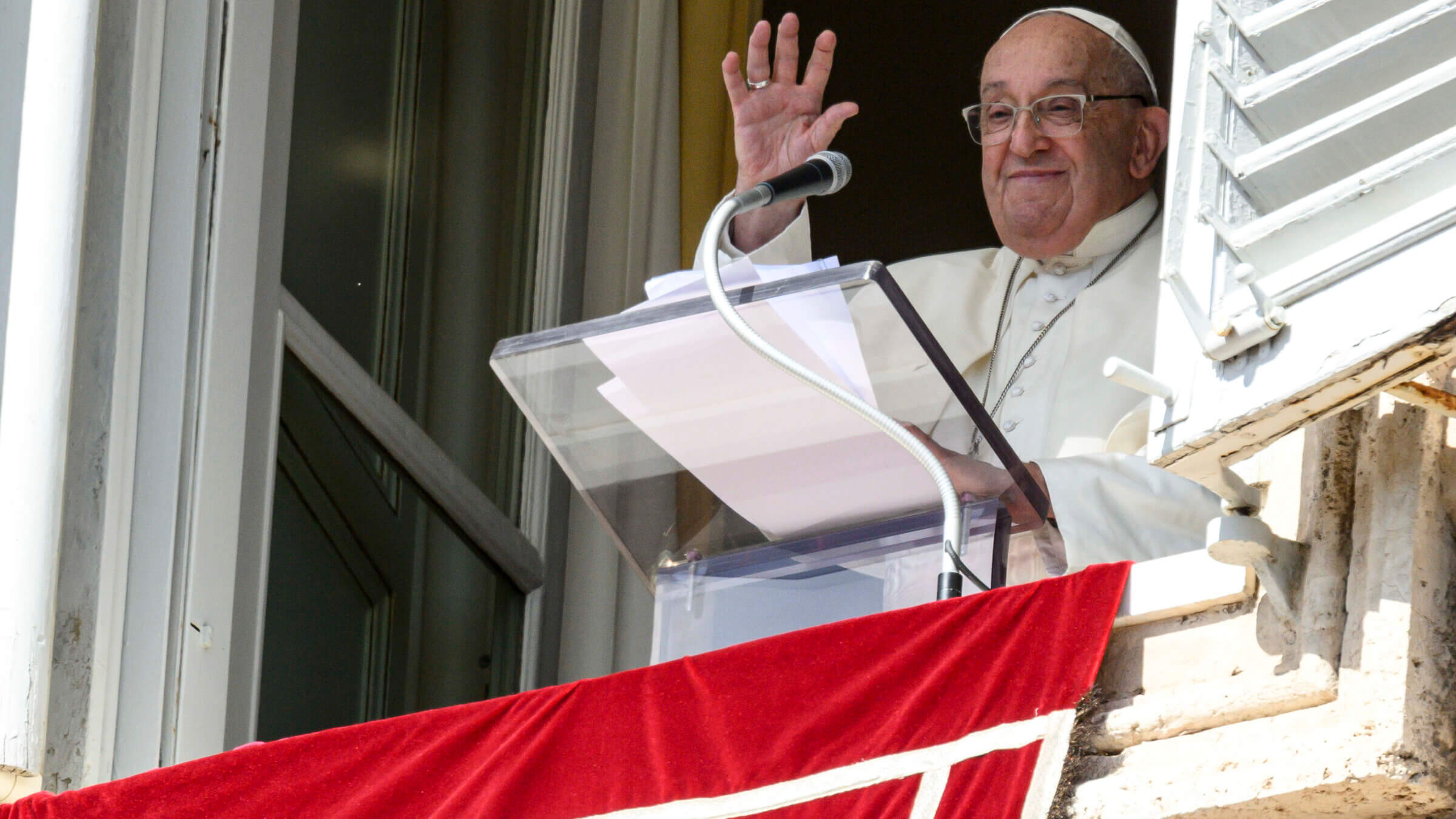The pope declared a fast on Oct. 7 — but Catholics can still eat
Fasting in the Catholic tradition wouldn’t register for most Jews

Pope Francis waves to the thousands of faithful gathered in St. Peter’s Square, where he announced a fast for Oct. 7. Courtesy of Getty Images
In the midst of the High Holidays, Pope Francis has called for a fast to commemorate Oct. 7.
“Prayer and fasting are the weapons of love that change history,” said the pope’s official X account. “They defeat our one true enemy: the spirit of evil who foments war, who was a ‘murderer from the beginning.’ Let us devote time to prayer and rediscovering the saving power of fasting!”
The pope has also called for a ceasefire, an immediate release of the hostages and the distribution of humanitarian aid. After the pope led a vigil on the one-year anniversary of Oct. 7, a cardinal asked the participants to give alms that would be sent to a priest in Gaza with whom the pope speaks every day.
The Oct. 7 fast coincides with a Catholic feast day, the Feast of Our Lady of the Rosary, which commemorates a battle won by Europe against the Ottoman Empire. Calling for a fast on a feast day — albeit one that, ironically, celebrates war — emphasizes the gravity of the pope’s call for abstention in hope of peace.
Pope Francis is a big believer in fasting; over the years, he has announced numerous fasts for war zones and conflicts, including in Syria, South Sudan and the Democratic Republic of the Congo.
But on Sunday, when the pope announced the fast after Mass to a crowd in Vatican City, some religious Jews were already fasting. It was Tzom Gedalia, a minor fast day which commemorates the murder of Gedalia, then the governor of the few Jews remaining in Israel under Babylonian rule after the destruction of the First Temple in the first century B.C.E. The murder, committed by another Jew, set off a round of bloodshed that caused the remaining Jews in the area to flee and ultimately ended Jewish autonomy in the region during that era.
To commemorate the minor fast, Jews abstain from food or water from sunrise to sunset; on major fast days, like Yom Kippur, the fast goes from sunset to sunset.
This is, however, still far more fasting than required in the Catholic Church’s definition of the act, which still allows three meals per day and simply requires that two of them be small and none involve meat. Fish is allowed, as is, according to various dioceses through history, alligator, beaver, muskrat and capybara, among other exotic animals.
The pope did not specify what the Oct. 7 fast should entail, aside from prayers for peace, nor how exactly it would change history. On Reddit, some suggested that abstaining from pleasures like Netflix or social media would be enough, though others promised to eat only bread and soup.
While Catholics figure out how best to observe the newly declared fast, however, Jews are preparing for Yom Kippur, which many take so seriously that they don’t even brush their teeth.
A message from our CEO & publisher Rachel Fishman Feddersen
I hope you appreciated this article. Before you go, I’d like to ask you to please support the Forward’s award-winning, nonprofit journalism during this critical time.
We’ve set a goal to raise $260,000 by December 31. That’s an ambitious goal, but one that will give us the resources we need to invest in the high quality news, opinion, analysis and cultural coverage that isn’t available anywhere else.
If you feel inspired to make an impact, now is the time to give something back. Join us as a member at your most generous level.
— Rachel Fishman Feddersen, Publisher and CEO